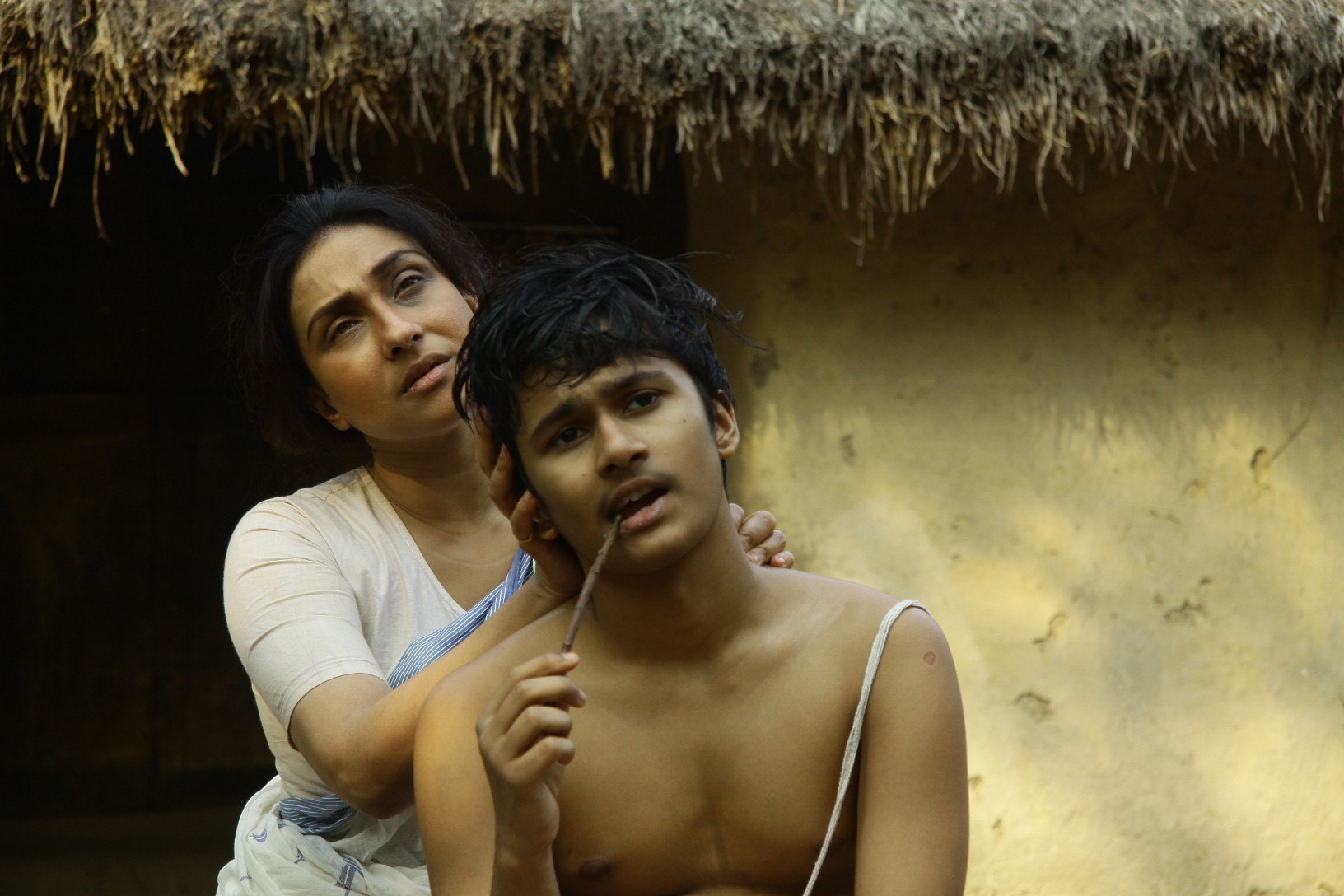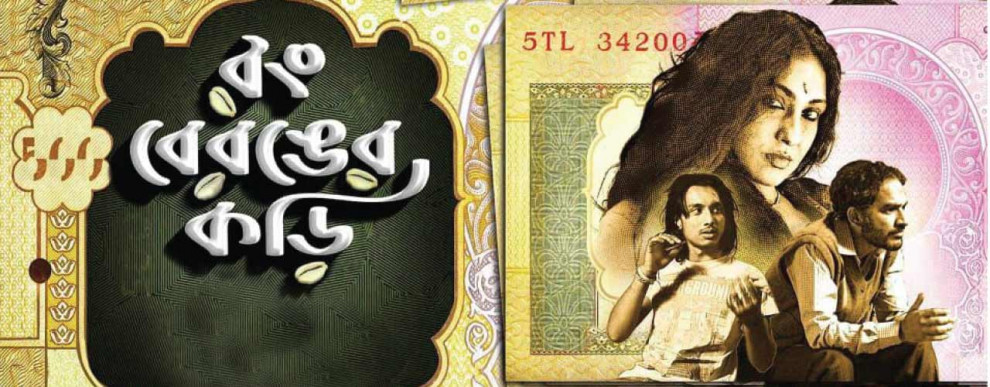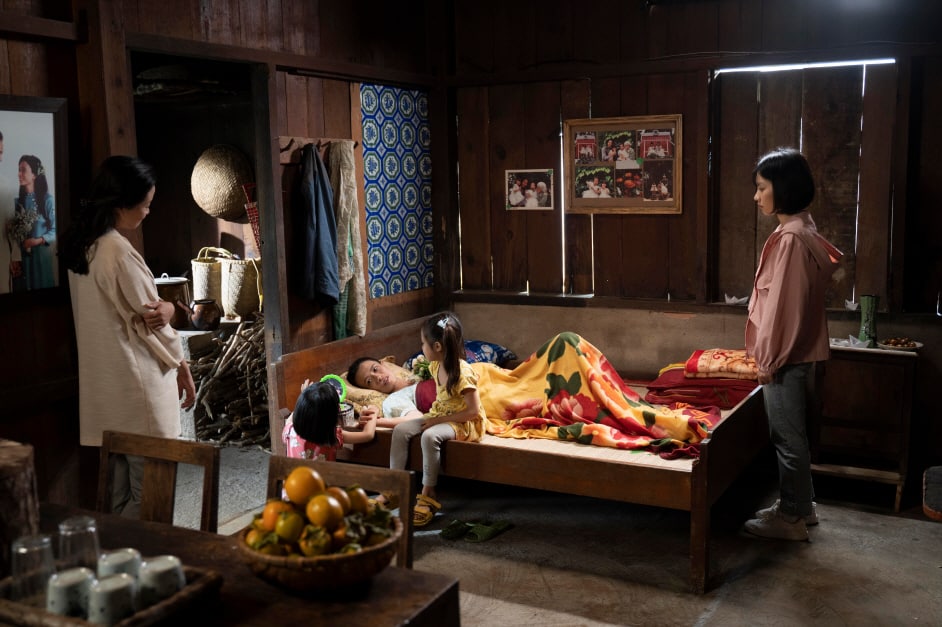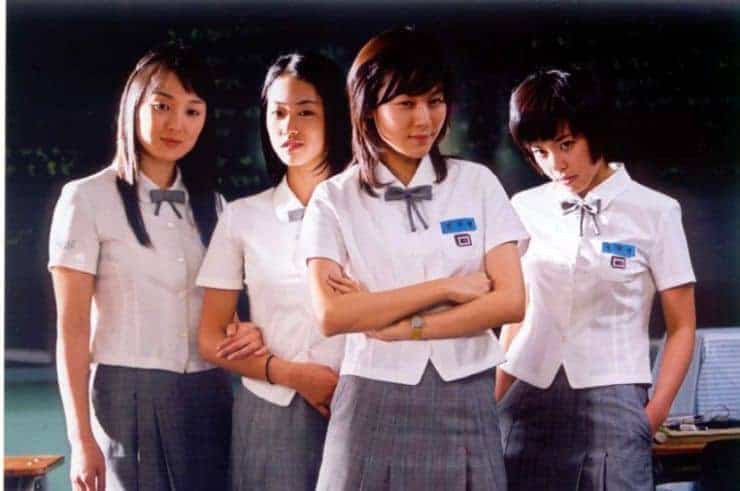Ranjan Ghosh is no stranger to wading into uncharted waters. His most recent film — “Ahaa Re” (2019) — spins a daring love story between a Muslim top chef and Hindu home caterer, describing a cross-cultural and cross-class love for food. Ghosh's tendency to break boundaries is not new, however. In “Colours of Money” (2017), his second feature, Ghosh curates an anthology of four shorts about India's poor. Released in the midst the demonetization crisis in 2016 (and subsequently attracted attention for it), Ghosh's earlier work captures a refreshingly intimate outlook of society's margins.
The shorts are themed, paralleling the different colors of the Indian rupee. In the first story, “Red – Love,” a poor tribal couple (Arunima Ghosh, Soham Chakraborty) seeking a divorce — and surprisingly, remarriage — from a profiteering clerk (Kharaj Mukherjee). Arunima Ghosh stars again in “Blue – Separation,” only this time clad in fine jewelry and luxurious fabrics. After hearing the news of her wealthy, aged husband's (Chiranjeet Chakraborty) death, she is tempted to marry her first lover (Arjun Chakraborty) as originally planned — until a surprise awaits them. The third and fourth stories revolve around Rituparna Sengupta. She first appears as a confessing prostitute in “Glittery – Profit,” and then as a chronically ill mother in “White – Loss.” In each situation, she is privy to the consequences of supporting a son in the absence of a husband, but in the presence of absolute poverty.
The shorts in and of themselves are not innovative material. Indeed, the stories themselves are borderline trope-y, if not folkloric. (A troubled man spending his time to talk to a prostitute is a tale as old as time, after all; just read “Notes of the Underground,” or even “Catcher in the Rye.”) Ghosh's application of these familiar stories with representations of the poor, however, gives the hackneyed a hot take. Instead of the usual pity party for decrepit conditions à la “Slumdog Millionaire,” Ghosh invites empathy instead of sympathy. With or without money, the viewers can both weep and celebrate with Ghosh's marginalized.

The core of the film's strength lies in its female leads. Well, of one in particular. While Arunima Ghosh follows more stylized depictions of her roles — as the hysterical wife on one hand, and as the fragile wealthy on the other — Rituparna's performance is remarkably nuanced. She maintains her charisma in both shorts, but is laced with subtlety. Rituparna as a sex worker is just as sultry as she is mysterious, resilient as she is resigned; and as a sick mother, debilitated, but quietly defiant. Even in these two startlingly different roles — visually striking as a perfumed prostitute, versus the faded cerulean sari of the ailing mother — her disparate body language completely consumes her aura. In a short amount of time, Rituparna successfully translates a mother's undying love in two totally distant acts.
Given the color-based motif, it is only a shame that Ghosh does not make more of this unique advantage. While luscious fabrics like Arunima Ghosh's stunning crimson sari do grace the screen, they chafe with the short's present motif (blue). Other set considerations feel neglected, as do the camerawork. Even paralleling the short's theme to the color of the rupee note mentioned would have felt more cohesive. For a theme that holds plenty of connotative potential, Ghosh ends up using color as more of a cerebral sensation than an optical one — leaving each short with a disorganized, if not puzzling, loose end.
All in all however, Ghosh's “Colours of Money” showcases this rising Bengali filmmaker's talent early on. Be prepared to both laugh and cry, to smirk and sigh — this novel depiction of the poor is a feel-good watch that is sure to please.
“Colours of Money” is available on Youtube to stream here. The film is internationally distributed by Eros International.















